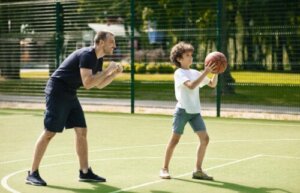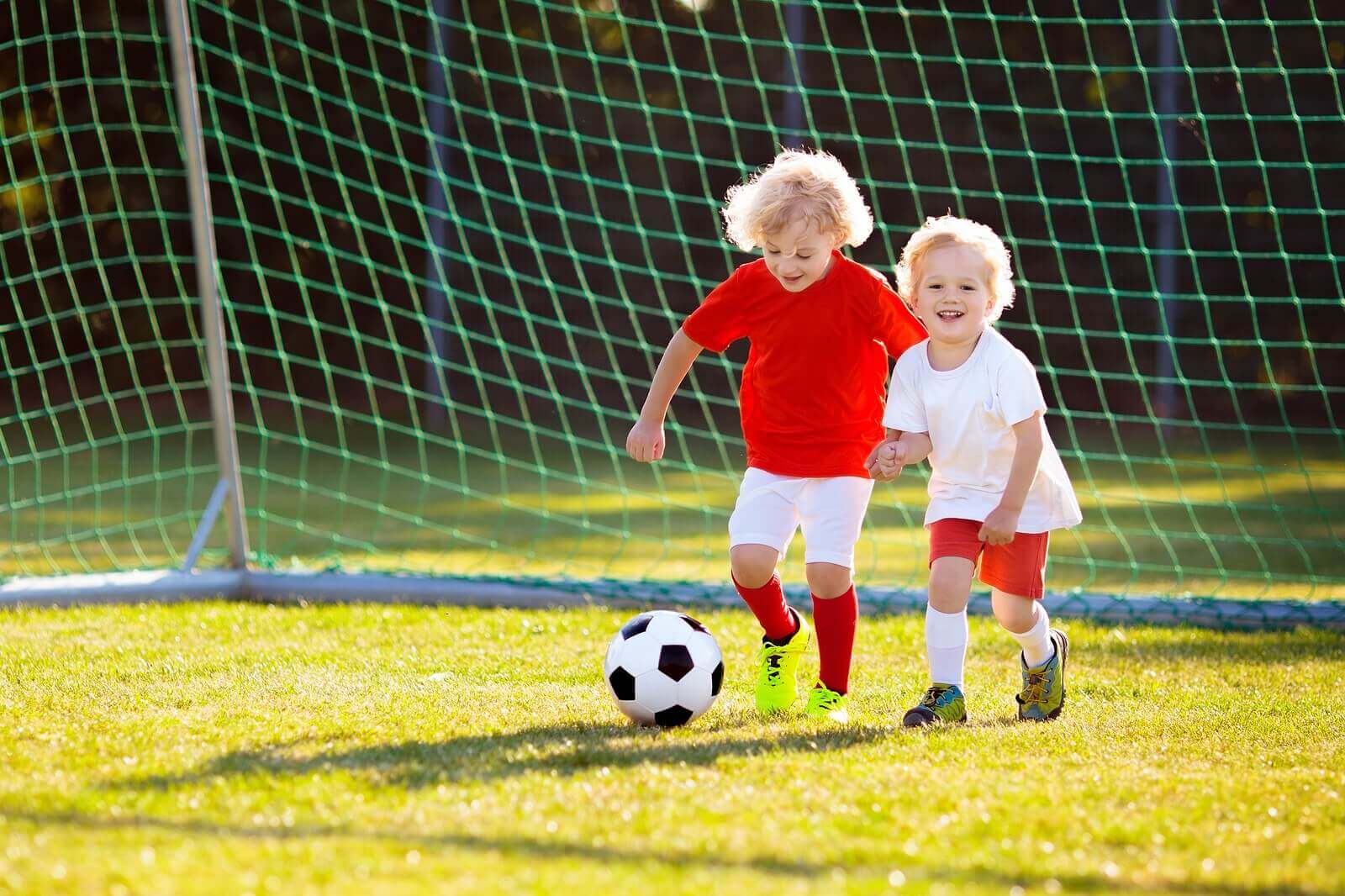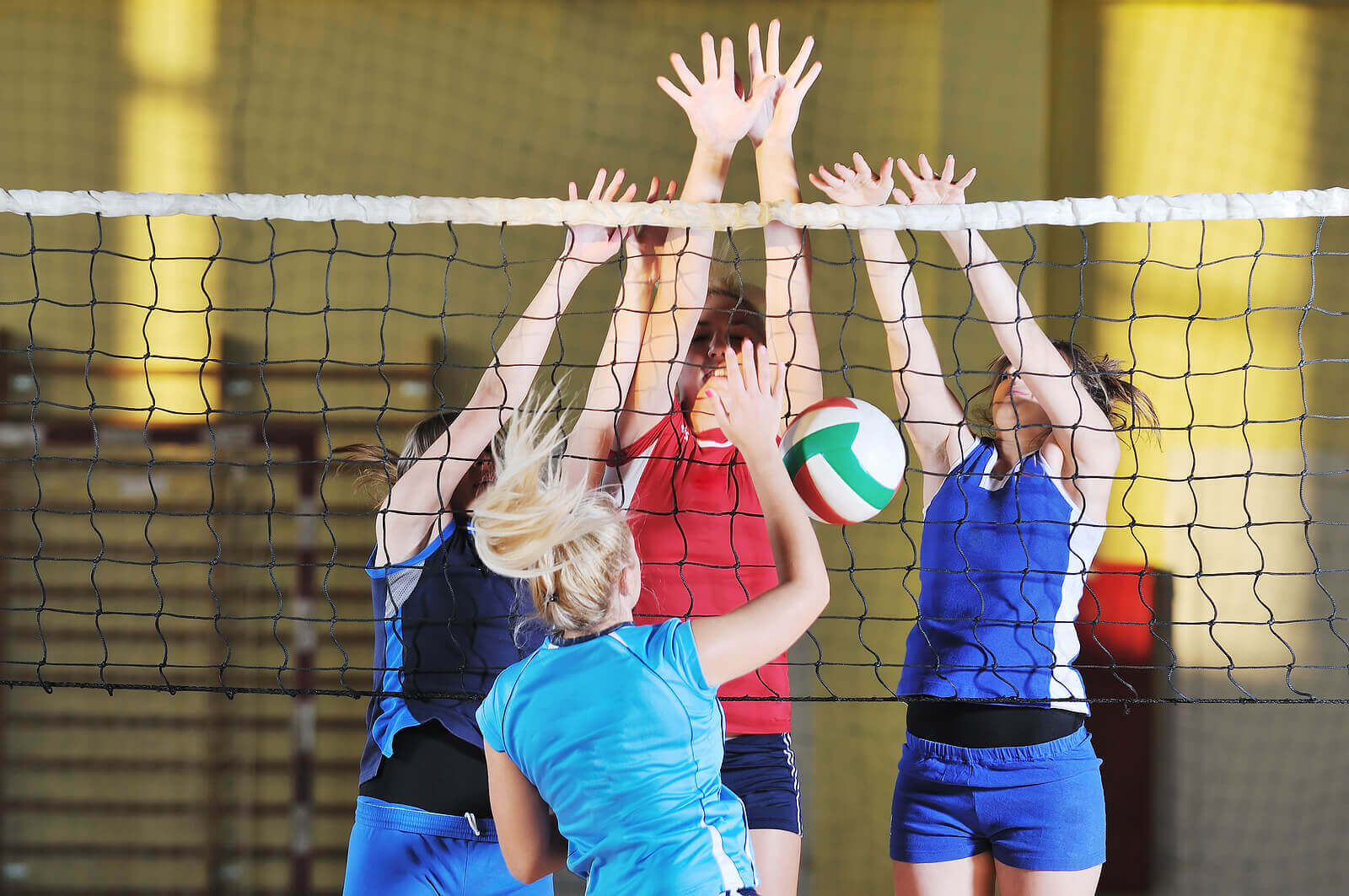The Role of Parents in Children's Sports

Parents play a very important role in their children’s hobbies and extracurricular life. In fact, without their support, many children wouldn’t be able to participate in sports activities. That’s why parents should get involved, but to what extent? What should the role of parents be in children’s sports?
It isn’t always easy for parents to know what to do to help their children have a positive and enjoyable experience with sports. This challenge is compounded by a wealth of information available from different sources and approaches to parenting and children’s sports.
What we need to keep in mind is that the involvement of parents in children’s sports will be different in every family. On the one hand, this is because children have different needs. On the other hand, because parents have different experiences with sports involvement. In addition to this, parents and children will encounter different situations as they get more and more involved.

Parents in children’s sports
The family has a central role to play in the success of a child’s educational or sporting life. Parents can contribute greatly to meeting their child’s learning needs.
They’re the natural focus of authority for their children and, in fact, they have a great impact on their attitude towards exercise and sport. Because of this, there’s no doubt that parents are an important contributing factor in their children’s involvement in sports.
However, when it comes to this issue, many parents aren’t too clear about what sports are best for their children. In fact, many don’t let their children participate in team sports because of the inappropriate attitude of some parents. Many of them tend to think they’re coaches, and shout instructions from the stands at games or training. This is why parents are often banned from getting involved in training.
However, taking parents out of the equation isn’t the best solution to the problem. Parents do have an important role to play in children’s sports. In fact, the role they play can affect a child’s interest and enthusiasm for sports in the future.
In this sense, as we’ll see below, research has shown a positive relationship between parents who participate in their children’s sports activities and the children’s enjoyment of the activity. Of course, as long as the involvement is appropriate and helpful.
Advantages of parents’ involvement in children’s sports
Parental involvement in children’s sports increases the likelihood that the child will participate in organized sports. In fact, according to a study published in Sport, Education and Society, the integration of organized sports into the school context is a way of leveling and compensating for inequalities on the playing field.
In other research, published in the International Journal of Environmental Research and Public Health, researchers highlighted that some of the most protective and favorable factors for child and adolescent development and health are family and sport.
For this reason, they emphasize that the family’s participation in children’s sports activities is vital in their sporting development.
It should be noted that many parents who are active in sports think that being a role model and setting an example is enough to encourage their children to play sports. This isn’t necessarily true.
In this regard, a paper published in the Journal of Sports Science & Medicine found that parental support for their children’s physical activity is more important than having the parents as role models.
However, this paper also found that more active parents are more likely to facilitate participation in organized sports. This is a very interesting point, as they found a higher prevalence of overweight or obese children with inactive parents.

Positive development
Finally, it’s important to note that parental involvement in organized sports has a close link to positive youth development. Results from a study conducted by University of Delaware researchers in 2018 indicated that higher levels of parental involvement in their children’s organized sports were significantly associated with higher levels of children’s connection to family, peers, school, and the community.
The results of this study also indicated that moderate parental involvement in organized sports had a significant link with higher levels of confidence in children. However, curiously, both higher and lower levels of parental involvement were associated with lower levels of confidence.
In addition, in terms of child development, positive parental involvement can help develop important skills such as self-esteem, motivation, and social skills. These skills that children can learn from sports are transferrable to other areas of life, such as school and extracurricular activities.
In short, the importance of the role that parents play in youth sports is unquestionable. However, they must be careful not to hinder their children’s enjoyment and development.
While parents have an important role in our children’s sports development, it’s essential that we exercise caution in our approach to them. Our behavior can have both positive and negative effects on their sports experience.
Parents play a very important role in their children’s hobbies and extracurricular life. In fact, without their support, many children wouldn’t be able to participate in sports activities. That’s why parents should get involved, but to what extent? What should the role of parents be in children’s sports?
It isn’t always easy for parents to know what to do to help their children have a positive and enjoyable experience with sports. This challenge is compounded by a wealth of information available from different sources and approaches to parenting and children’s sports.
What we need to keep in mind is that the involvement of parents in children’s sports will be different in every family. On the one hand, this is because children have different needs. On the other hand, because parents have different experiences with sports involvement. In addition to this, parents and children will encounter different situations as they get more and more involved.

Parents in children’s sports
The family has a central role to play in the success of a child’s educational or sporting life. Parents can contribute greatly to meeting their child’s learning needs.
They’re the natural focus of authority for their children and, in fact, they have a great impact on their attitude towards exercise and sport. Because of this, there’s no doubt that parents are an important contributing factor in their children’s involvement in sports.
However, when it comes to this issue, many parents aren’t too clear about what sports are best for their children. In fact, many don’t let their children participate in team sports because of the inappropriate attitude of some parents. Many of them tend to think they’re coaches, and shout instructions from the stands at games or training. This is why parents are often banned from getting involved in training.
However, taking parents out of the equation isn’t the best solution to the problem. Parents do have an important role to play in children’s sports. In fact, the role they play can affect a child’s interest and enthusiasm for sports in the future.
In this sense, as we’ll see below, research has shown a positive relationship between parents who participate in their children’s sports activities and the children’s enjoyment of the activity. Of course, as long as the involvement is appropriate and helpful.
Advantages of parents’ involvement in children’s sports
Parental involvement in children’s sports increases the likelihood that the child will participate in organized sports. In fact, according to a study published in Sport, Education and Society, the integration of organized sports into the school context is a way of leveling and compensating for inequalities on the playing field.
In other research, published in the International Journal of Environmental Research and Public Health, researchers highlighted that some of the most protective and favorable factors for child and adolescent development and health are family and sport.
For this reason, they emphasize that the family’s participation in children’s sports activities is vital in their sporting development.
It should be noted that many parents who are active in sports think that being a role model and setting an example is enough to encourage their children to play sports. This isn’t necessarily true.
In this regard, a paper published in the Journal of Sports Science & Medicine found that parental support for their children’s physical activity is more important than having the parents as role models.
However, this paper also found that more active parents are more likely to facilitate participation in organized sports. This is a very interesting point, as they found a higher prevalence of overweight or obese children with inactive parents.

Positive development
Finally, it’s important to note that parental involvement in organized sports has a close link to positive youth development. Results from a study conducted by University of Delaware researchers in 2018 indicated that higher levels of parental involvement in their children’s organized sports were significantly associated with higher levels of children’s connection to family, peers, school, and the community.
The results of this study also indicated that moderate parental involvement in organized sports had a significant link with higher levels of confidence in children. However, curiously, both higher and lower levels of parental involvement were associated with lower levels of confidence.
In addition, in terms of child development, positive parental involvement can help develop important skills such as self-esteem, motivation, and social skills. These skills that children can learn from sports are transferrable to other areas of life, such as school and extracurricular activities.
In short, the importance of the role that parents play in youth sports is unquestionable. However, they must be careful not to hinder their children’s enjoyment and development.
While parents have an important role in our children’s sports development, it’s essential that we exercise caution in our approach to them. Our behavior can have both positive and negative effects on their sports experience.
All cited sources were thoroughly reviewed by our team to ensure their quality, reliability, currency, and validity. The bibliography of this article was considered reliable and of academic or scientific accuracy.
- Andrews, L., & Carrano, J. (2018). Is Parental Participation in Organized Sports Associated with Positive Youth Development? The International Journal of Sport and Society, 9(4), 45–59. https://doi.org/10.18848/2152-7857/cgp/v09i04/45-59
- Erkelenz, N., Kobel, S., Kettner, S., Drenowatz, C., & Steinacker, J. M. (2014). Parental activity as influence on children’s BMI percentiles and physical activity. Journal of Sports Science and Medicine, 13(3), 645–650.
- Sánchez-Romero, E. I., Verdaguer, F. J. P., Borràs, P. A., & García-Mas, A. (2020). Systematic observation of the verbal behavior of families of youth athletes in grassroots and team sports. International Journal of Environmental Research and Public Health, 17(4). https://doi.org/10.3390/ijerph17041286
- Qunito Romani, A. (2020). Parental behaviour and children’s sports participation: evidence from a Danish longitudinal school study. Sport, Education and Society, 25(3), 332–347. https://doi.org/10.1080/13573322.2019.1577235
This text is provided for informational purposes only and does not replace consultation with a professional. If in doubt, consult your specialist.








